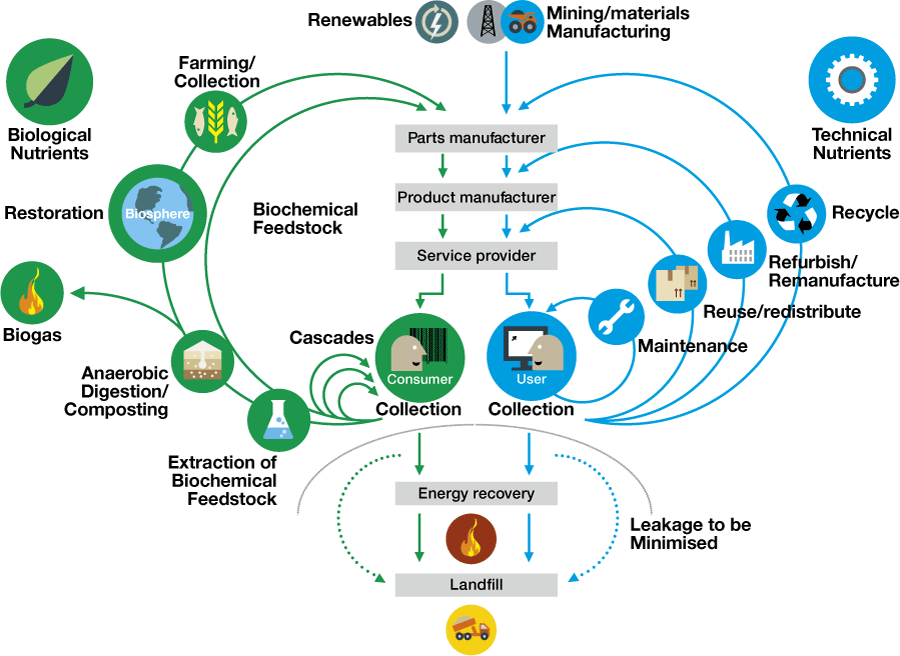Steve Gutmann wastes not.
Steve Gutmann is the Where’s Waldo of the sharing economy. Name an “underutilized asset” and Gutmann has an idea for monetizing it. He has worked as a national sales manager for Flexcar (now Zipcar), a business development manager for Getaround, the peer-to-peer car-sharing service, and a broker of carbon transactions at Ecosecurities, an international carbon trading firm. Today Gutmann rents out his driveway on Justpark.com, markets his basement on Airbnb and is a vice president of Stuffstr, a startup that will launch an app this spring aimed at reducing waste by increasing the reuse of unused household items. Gutmann, 50, discusses the vast potential of sharing, the emerging circular economy and why we all need to get more use out of our stuff.
Stuffstr will offer consumers a way to sell or recycle household goods. But we already have eBay, Craigslist.
Stuffstr is not a marketplace. Instead, it’s a mobile app that automatically captures all of the key details of users’ retail purchases and provides a hassle-free way to manage those products from the time they’re purchased all the way through to when they’re recycled. Everything we do is focused on realizing our vision of No Unused Stuff.
Will Stuffstr inspire people to buy less?
Our mission is not about encouraging people to spend less, but about inspiring and helping people to maximize the value and actual use of every item they purchase. By using information technology to streamline repair and resale, we also subtly incentivize people to purchase higher-quality, longer-lasting products that retain more value over time.
What is the environmental impact of stuff?
Buying products we don’t fully use is incredibly destructive. For example, most people don’t realize that the CO2 embedded in the household items we buy each year exceeds the annual emissions of the entire U.S. auto fleet. So getting even just 10%-20% more use out of the things you buy is equivalent to not driving your car for one to two months every year.
Stuffstr depends on partnerships with retailers. What do they have to gain?
We have designed our entire system to benefit retailers who encourage their customers to get more use and value from the things they buy. Three of the U.S.’s five largest retailers are currently engaged with us regarding ways in which Stuffstr can benefit both them and their customers.
What is Stuffstr’s biggest challenge?
Scope. Stuffstr is a big, ambitious project. We’re not just developing a technology; we’re working to engage an entire ecosystem of players: retailers, repair services, resale marketplaces, sharing marketplaces, charities and recycling facilities, etc. We can’t do everything at once, and deciding where to focus first is a challenge. But we believe we’ve found the right way forward via our private beta and some custom research.
You describe Stuffstr as part of the “circular economy.” Explain.
A circular economy is an alternative to a traditional linear “make, use, dispose” economy. A circular economy is restorative and regenerative by design. It aims to keep products, components and materials at their highest utility and value at all times through maintenance and repair; resale, redistribution and sharing; refurbishment and remanufacturing; and, ultimately, recycling.

“Transitioning to the circular economy could be the biggest opportunity for improving how we organize production and consumption in the global economy since the dawn of the Industrial Revolution 250 years ago.” —Peter Lacey, Global Managing Director, Accenture Strategy, Accenture, writing on the World Economic Forum website September 15, 2015
Doesn’t the circular economy run counter to the planned obsolescence built into many products: iPhones, laptops, IKEA furniture?
Yes, it does. But increasing numbers of forward-thinking retailers and manufacturers realize that planned obsolescence is a dead-end street. Companies as far-reaching as Apple, Dell, Philips Electronics, IKEA, HP, Renault and Cisco have all become actively engaged in advancing a circular economy. They’re all looking at new business models that profit from maximizing the lifetime value of the products they make.
Stuffstr was named a Circulars Digital Disruptor finalist at the 2016 World Economic Forum. Congratulations.
It was a great honor, especially because we were the only pre-release product or service to win an award in any category. It was great validation of the importance of what we’re doing.
Are Europe and Asia ahead of the U.S. on the circular economy?
Major European, Asian and American companies — as well as NGOs and government entities — are starting to focus on the transition to a circular economy, and how they benefit from the opportunity this shift represents. The U.S. may still be somewhat behind the Europeans and Chinese; however, U.S. companies like Cisco and Google recently engaged in a meaningful way, and I have little doubt that the U.S. will catch up once more companies, investors and entrepreneurs begin to grasp the magnitude of the opportunity.
We are seeing a backlash of sorts against sharing-economy businesses like Uber and Airbnb. Does that surprise you?
I’m not sure I agree. There’s certainly a backlash against Uber; however, the term “sharing economy” is really broad, and I don’t see a broad-spectrum backlash. Some companies are engaging in business practices that are highly controversial. However, there are also many fantastic companies that are using technology to help regular people derive tremendous hitherto untapped value from once underutilized assets. Fleet-based and peer-to-peer car-share schemes— Zipcar, Car2go, Getaround, Turo — continue to expand and evolve, and they are clearly serving a real need. The same is true of BlaBlaCar, which hasn’t yet caught on in the U.S. but is very popular in Europe. It’s hard to deny that Airbnb and Vacasa have created tremendous value for thousands of participating homeowners. The “sharing economy” is definitely disruptive to incumbent industries and often controversial, but I’d caution against painting all of the players with the same brush.
But peer-to-peer and online shopping platforms also mean more packaging and auto emissions — from personal freight services.
It’s complicated. We need to change the entire tax system to make fossil energy and natural resource inputs to production much more expensive. Tax carbon emissions and resource extraction instead of labor. If that happens, the circular and sharing economies should both get a big boost, because everyone will try to minimize material and energy waste. And then companies like Amazon — which use little labor but lots of materials and energy — would need to either respond by using fewer boxes and bundling their deliveries, or their model would come under pressure.
How do the sharing and circular economies play out in your personal life?
I grew up in a household where waste of any kind was frowned upon. My parents weren’t very well off when we immigrated to the U.S. from postwar Europe, so they wasted nothing. I grew up eating leftovers, wearing hand-me-downs from secondhand stores and wearing wool sweaters at home. Today I try to focus my consumption on needs rather than wants, and my whole family leverages various peer-to-peer sharing platforms to rent out bikes, cars and spaces that we don’t actively use. Also, like so many Oregonians, we always try to find a “next home” for our still-useful but no-longer-wanted stuff, rather than just throwing it out.



